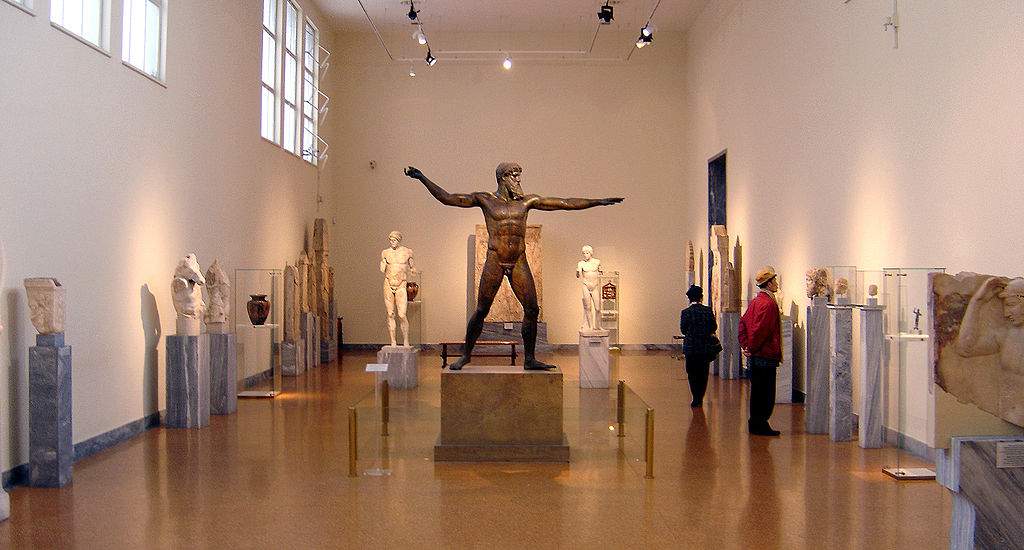A bill that in some ways resembles the Franceschini reform of 2014-2015 is causing much discussion in Greece. The Greek reform, brought forward by Lina Mendoni, culture minister in the government of Kyriakos MÄ«tsotakÄ«s, would in fact stipulate that five of the country’s major museums (the National Archaeological Museum of Athens, the Byzantine and Christian Museum of Athens, the Archaeological Museum of Thessaloniki, the Museum of Byzantine Culture of Thessaloniki, and the Archaeological Museum of Heraklion) would no longer be dependent on the Archaiologikí YpÄ«resía, i.e., the ministry’s “Archaeological Service” (a counterpart of our Directorate General for Archaeology, Fine Arts and Landscape, competent, however, only for archaeology as was the former Directorate General for Archaeology), but acquire financial and managerial autonomy. In detail, the museums will acquire the status of NPDD (Nomikó Prósopo DÄ«mosiou Dikaiou, “Legal Person of Public Law”).
This is similar to what happened in Italy in 2014, when museums were linked to superintendencies, and then became autonomous following the Franceschini reform. Until now, the only Greek museum that enjoyed autonomy was the Acropolis Museum. What are the principles guiding the reform, Lina Mendoni explained in response to a parliamentary question from opposition MP Kleon Grigoriadis. “Our museums,” Mendoni said, “have enormous potential, but they need an effort for structural change, because they cannot fully function in the stifling state administrative and economic framework. This vision is supported by many experts internationally and has already been adopted in the largest museums abroad, where institutional disengagement of museums from the tight embrace of the state has taken place in order to manage them better and more effectively, for years.”
Mendoni said museum autonomy is part of his programmatic goals, and the drafting of the law, he assured, will come after the necessary consultation with all stakeholders and society. Autonomy, Mendoni explained, will be used to ensure that museums are more efficient and are managed “through the use of business administration and management methods,” as well as according to a communications- and marketing-oriented approach. For the new autonomous museums, there will also be boards of directors, as in Italy. As for the employees already working at the museums, Minister Mendoni let it be known that there will be no change in labor relations (workers will remain in the ministry’s employ), while workers hired in the future, will be so according to the legal procedures provided by the bodies enjoying NPDD status.
An opposition movement led by 119 workers, all former officials of the Ministry of Culture, some of whom have worked there since the 1960s (there are curators, directors, managers, department heads, general managers), has developed against the bill. Together they signed an open letter calling for the five museums to remain under the umbrella of the Archaeological Service. “We were surprised,” they write in the letter, “to hear, from the political leadership of the Ministry and the Prime Minister himself, the announcement of the conversion of the country’s five largest museums (National Archaeological Museum, Byzantine and Christian Museum, Archaeological Museum of Thessaloniki, Museum of Byzantine Culture, Archaeological Museum of Thessaloniki) into legal entities under public law. We understand that the current Minister of Culture (an archaeologist herself), instead of formulating a comprehensive national museum policy, integrated into broader and more up-to-date cultural plans (research, education, intellectual and social awareness on contemporary national and global issues, cultural participation, cultural development, cooperation), has formulated a project that has political ends and intends to establish, with insufficient arguments, ’autonomous’ and ’lifted from state suffocation’ museums.”
“Severing the museum’s ties with the Archaeological Service,” the ministry officials argue, “will mean the end of the mobility of specialized scientific knowledge. It will mean the end of the possibility for museums to make use of the lifeblood of archaeologists, museologists, museum educators, conservators, architects, and artisans, who always bring their valuable specialization and experience, both for the institutions themselves and for visitors, primarily the students of our schools. [...] These museums will simply be exhibition spaces, market products, with restaurants and stores.”
“Most of us have known the old and historic directors of the country’s great museums and learned from them. One guesses, then, that cutting museums from the Archaeological Service will result in changing the selection criteria for their administration. It will mean a shift from a system of scientific and administrative selections from among hundreds of specialized professionals in the Ministry, to a system of government appointments of the President and members of the Boards, which will be dictated by the criteria of one, that is, the Minister. In other words, it will mean a shift from a system of excellence to the tactics of allocation.”
“We therefore join our voice with that of our current colleagues,” the 119 former officials conclude, “and ask the President of the Council and the political leadership of the Ministry of Culture not to exclude the five museums from the Archaeological Service. We ask them not to proceed with the catastrophic mutilation of the Archaeological Service, which could lead to the secession of other museums and major archaeological sites in the future. The radical restructuring of a public service that has a history of nearly 187 years, no matter how noble its motives, must be done thoughtfully, preceded by a creative scientific debate that does not invoke an act of destruction. This, however, did not happen, and we demand that it happen even at the last minute.”
Photo: Room 15 of the National Archaeological Museum in Athens. Ph. Credit Ricardo André Frantz
 |
| Protests in Greece over museum reform similar to Franceschini's |
Warning: the translation into English of the original Italian article was created using automatic tools. We undertake to review all articles, but we do not guarantee the total absence of inaccuracies in the translation due to the program. You can find the original by clicking on the ITA button. If you find any mistake,please contact us.